From Survival to Self-Reliance – GlobalWA Members Untangle the Complexities of the Refugee Crisis
By Aneesh Chatterjee
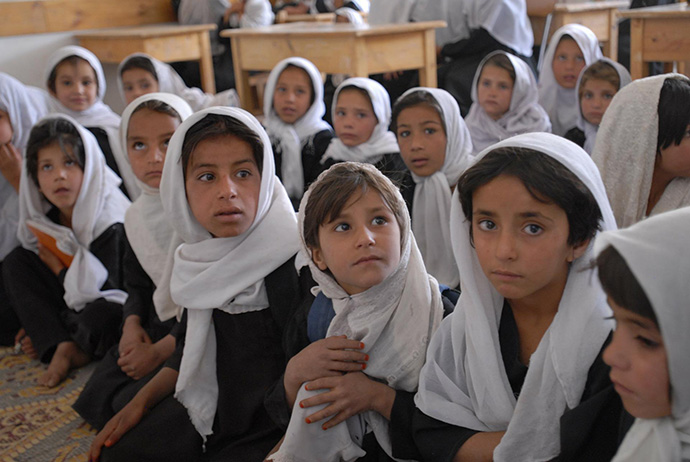
Afghan children. Photo: Pixabay
Reducing inequalities for all, the central pillar of Sustainable Development Goal 10, is a sentiment exemplified in no small part by efforts to address the rampant and growing refugee crisis. The lack of access to resources, whether they be vital for survival or instrumental in economic success, is a persistent issue present in refugee communities the world over. The number of people displaced around the world due to war, human rights abuses, and persecution reached up to 108.4 million as of 2022, according to the UNHCR’s Global Trends Report. Increasingly strict refugee admission laws have exacerbated the disaster, highlighting a stark pushback against the acceptance of displaced persons.
From emergency relief to education, training and resettlement, GlobalWA members engage with the refugee crisis through unique and impactful interventions, shrinking the gap between these communities and the resources they need.
Building stability: Vital provisions for displaced communities
Displaced populations are at risk of malnutrition, violence, disease, and starvation. To address the lack of crucial survival needs, GlobalWA members have worked to provide effective, essential resources for refugees across the world.
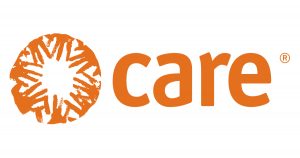
For CARE, providing access to nutrition, sanitation, and healthcare is paramount when addressing the refugee crisis. With programs across the world focusing on multiple populations of displaced persons, CARE conducts exemplary work in providing vital resources.
In the Democratic Republic of Congo (DRC), CARE has provided food rations, sanitation resources for women and disease and gender-based violence prevention training for local refugee communities. In Bangladesh, CARE has helped bolster the community’s healthcare resilience by building an isolation center during the COVID-19 pandemic, capable of housing up to 40 people and created for the Rohingya refugee population. Solar-powered, equipped with medicine and oxygen support, and staffed by doctors, the facility has been instrumental in servicing the local refugee community during the pandemic.
In Venezuela, CARE has taken vital steps to address the rampant displacement of nearly 3 million people due to rising hunger, political violence, crime rates, and inflation. With host nations like Ecuador requiring refugees to have Venezuelan passports to enter, and victims housed in Columbia facing xenophobic violence from locals, refugee populations are at risk of human trafficking, violence, and malnutrition. In 2018, CARE provided cash vouchers, SIM cards and public transportation tickets to displaced communities across Columbia, Ecuador, and Venezuela, connecting them with tangible, practical resources to provide relief from hunger, isolation, and a lack of communication. Refugees in Peru were also connected with shelters and health clinics, while those in Columbia were granted access to legal counsel and other necessary information resources. CARE has taken similar approaches in assisting refugees from Syria, providing food kits, winter survival equipment and access to reproductive health support for women for up to 4.5 million displaced persons in Syria. Beyond provisions, CARE has also helped refugee communities build resilience with agricultural production support, paid work, microfinancing, and access to clean water.

Other GlobalWA members are working to address lack of access to a myriad of specific resources. Adequate water access is a priority for Oxfam America, exemplified by their work in Ethiopia. To supply clean water to refugee camps, Oxfam’s implementation of a 100-kilometer-long pipe network, drawing water from Baro River, treats and directs nearly 1500 cubic meters of water a day. Americares has focused on increasing access to medicine and healthcare for Ukrainian refugees, partnering with 77 local institutions and providing up to $84 million in grants to facilitate medical aid shipments.

Beyond preserving health and ensuring survival, other members focus on building structural resilience in refugee communities, teaching self-sufficiency, and ensuring sustainable economic engagement.
Investing in self-reliance: Training and literacy
Certain GlobalWA members focus on providing refugee populations with the skills, resource access and financial acumen required for self-reliance and long-term stability. To that end, organizations have prioritized financial training and employment as key areas of focus in addressing the refugee crisis.

The Refugee Women’s Alliance (ReWA) highlighted the work of Starbucks in joining the pledge to hire and train 250,000 refugees in Europe, in the wake of displacement caused by the invasion of Ukraine. Announced at the 2023 Tent European Business Summit on World Refugee Day, June 20th, Starbucks is joining Amazon, Accenture, Adidas, Indeed, Randstad, ManpowerGroup, and others in providing real employment to Ukrainian refugees –numbering at nearly 6 million people displaced across Europe.
Starbucks alone has pledged to provide skills training to 86,000 refugees and direct employment to over 13,000. Through their Refugee Employment Program, Starbucks has committed to training Ukrainian refugees in specific retail industry skills, including interview proficiency and customer service. Starbucks’ history with refugee assistance spans back to 2017 at the inception of the Refugee Employment Program, founded on the goal of hiring 10,000 refugees by 2022.
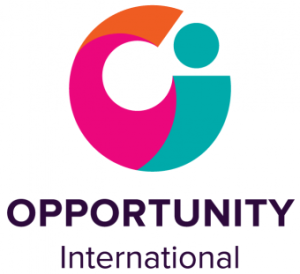
Providing financial assistance to displaced communities has been a cornerstone of development toward the reduction of inequalities for refugees, enabling a tangible distribution of access to the economy, to training resources, and investment opportunities. To that end, the Refugees, Innovations, Self-Reliance and Empowerment (RISE) initiative is a 2019 project by Opportunity International to provide financial literacy to refugees, engage them with the local economy and build long-term resilience and self-reliance for communities in Uganda. Host to over 1.5 million refugees from multiple neighboring states, with a majority coming from South Sudan and the Democratic Republic of the Congo, the government of Uganda has developed response frameworks to allow equal access to sanitation, education and healthcare for refugees. Utilizing cooperation from local institutions, the RISE project partnered with Opportunity Bank Uganda and FINCA to deliver extensive financial literacy services.
Within a year of the program’s implementation, Opportunity International had trained 950 refugees in financial literacy, with 90% of them actively saving their earnings. 200 refugees also reported to be writing financial diaries, which Opportunity International reports has helped motivate participants to earn and save, develop mindsets built for sustainable finance and self-regulation, and worked as a vital window into the personal experiences of refugees during the COVID-19 pandemic.
In June, 2023, Opportunity International entered into a two-year partnership with Rural Inclusion (RI) to use RI’s proprietary Ostrii platform to deliver financial literacy training for populations targeted by RISE (in a new phase of the project dubbed Refugees, Innovations, Self-Reliance and Empowerment—Transition, or RISE-T).
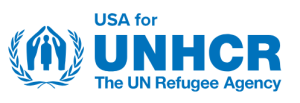
Other GlobalWA members have built additional sector-specific services and resources that address key necessities for refugee communities beyond survival. The Kiva World Refugee Fund, co-founded by USA for UNCHR, finances small businesses operated by refugees – a critical step toward financial freedom, growing beyond simply meeting the basics for survival. Launched in 2017, the Fund provides refugees with credit, financial counsel and zero-interest loans, enabling them to climb out of crisis and participate in the economy. The Global Mentorship Initiative aims to connect refugee candidates with professional networks, train them in digital skills, build resumes and teach other transferrable workplace skills to ensure career success for candidates.
Beyond financial and educational support, the full scope of refugee assistance can be seen in organizations built specifically to address the increasingly complex crisis of displacement.
Broad-spectrum: Dedicated institutions for refugees
Alongside NGOs with multi-sector focuses and specialized branches for refugee support, certain GlobalWA members are built on the foundation of helping refugees across the world restabilize and thrive. With efficacious branches in multiple areas of development, these organizations deliver rounded and comprehensive programs.
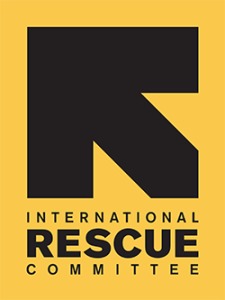
The International Rescue Committee (IRC), created to help people recover from disasters and displacement, provides programs across multiple sectors of focus, having reached over 32.9 million people worldwide. Providing structural resilience, the IRC inculcates safety training in schools and workplaces, ensuring women and children are protected from violence and abuse, and promoting healthy practices for safety and awareness around communities recovering from disasters. The IRC’s comprehensive healthcare goals focus on empowering locals in treating and preventing pneumonia, malaria, malnutrition-related fatalities, and other conditions targeting children. Advocacy services connect people with health insurance, provide access to the proper doctors and necessary facilities, and teach self-care in the long term for lifelong conditions. In the education sector, the IRC works with teachers and parents to ensure a nurturing and supportive learning environment, at school and at home. The provision of reliable and high-quality instructional material and other school facilities accompany their focus on building an enriching educational space for refugees.
In addition to these focuses, the IRC also provides financial assistance and extensive advocacy and empowerment services to ensure that refugees are not denied resources, connections, and opportunities.
USA for UNHCR is another organization built to reincorporate displaced persons into society, with a similar multi-sector approach. Their emergency relief efforts, cash provisions alongside other financial assistance, and education programs are accompanied by their focus on innovative, adaptable technologies. The remote Azraq refugee camp in Jordan was the first to run on solar power in 2017, allowing for nighttime operations, food refrigeration, and prolonged light availability, bringing predicted energy savings at $1.5 million per year – one example of USA for UNHCR’s successful impact in crises using versatile innovation. In the education sector, the organization had helped up to 250,000 refugee children successfully enroll in school by 2018, and had helped 4000 refugees win the Albert Einstein German Academic Refugee Initiative scholarship, opening up opportunities to study at universities across the world.
In addition to developmental programs, USA for UNHCR also helps refugees resettle in the United States. A mentorship program called Hello Neighbor matches newly-settled refugees with locals, providing guidance and cultural acceptance for newcomers. Kids in Need of Defense (KIND) provides free legal counsel for child refugees who arrive unaccompanied, and the Refugee Congress is a delegation with representatives from all 50 states who advocate for refugees in a joint venture.
From preventing starvation at a grassroots level to reshaping mindsets and institutions, NGOs have worked to reduce inequalities for refugees at every level of engagement, across multiple sectors. A collaborative approach that utilizes the specialized focuses of these organizations, alongside the joint expertise of comprehensive refugee-dedicated NGOs, presents as the most reliable path to development in the refugee crisis.
In addition to the above organizations, the following GlobalWA members are working to help refugees, immigrants, and internally displaced persons through their programs in communities where they work.
CARE is dedicated to supporting refugees and people displaced by war, disaster and drought around the world. For those fleeing crises, CARE is there to provide urgently needed support. In places like Ukraine and Syria and across the borders where so many have fled, CARE distributes relief supplies such as food baskets, water, tents, hygiene and baby kits, dignity kits for the elderly, and kitchen sets. During harsh winters, we support families with mattresses, blankets, floor coverings, and children’s clothing. CARE’s and our partners also work with health clinics, and we place a special focus on the needs of women and girls, ensuring access to maternal and reproductive health care.
During protracted conflicts like the one in Syria, there is also an urgent need to rebuild livelihoods and encourage social cohesion and resilience to help people cope with a long-term crisis. Together with partners, CARE has developed programs that contribute to strengthening the resilience of communities affected by the crisis. This includes providing families with early recovery and livelihoods support, such as agricultural production, cash for work, women’s economic empowerment, microfinance, and psychosocial support programming.
ChildFund International promotes children’s development at each stage of life to ensure infants and young children are healthy and secure, children are educated and confident and youth are skilled and involved in their communities. ChildFund reaches over 10.5 million people across 24 countries – including the United States – through work with local partner organizations, governments, corporations and individuals. We work to strengthen child protection-focused institutions and policies by combining our programs with efforts to influence local and national leaders to prioritize the protection and well-being of children and youth. Approximately 200,000 Americans support ChildFund’s work through sponsoring individual children and investing in our programs.
Concern Worldwide is an international humanitarian organization dedicated to ending extreme poverty, whatever it takes. Concern believes that no human potential should go unfulfilled due to poverty, disaster, or crisis. Since 1968, Concern has saved countless lives – reaching 36.9 million people in 2020 alone – while working alongside communities to develop programs to help break the cycle of poverty, for good.
Covenant House International builds a bridge to hope for young people facing homelessness and survivors of trafficking through unconditional love, absolute respect, and relentless support. Its doors are open 24/7 in 31 cities across six countries: Guatemala, Honduras, Mexico, Nicaragua, Canada and the U.S. Its holistic programs empower young people to rise and overcome adversity, today and in the future.
Every college student, refugee, and early career candidates deserves a champion. One person to guide them as they navigate the transition to their first career. Through a structured, online, one-to-one mentorship with a business professional, we are connecting mentees to employment, transforming communities, and building a brighter tomorrow.
Academics, defenders, immigrants and innocent persons can be unjustly detained or disappeared. GRA takes their cases to the United Nations or the Inter-American Commission of Human Rights.
Defending indigenous lands, the environment or immigrant rights could trigger retaliation. GRA represents defenders before the Inter-American Commission of Human Rights and the United Nations.
For years we documented human rights violations at the NWDC and reported direct voices from detention to the United Nations and the Inter-American Commission. We work to end immigration detention and partner with La Resistencia.
International Rescue Committee
The International Rescue Committee (IRC) helps people in 40+ countries whose lives and livelihoods are shattered by conflict and disaster to survive, recover, and gain control of their future. Since 1976, the IRC in Seattle has helped thousands of refugees, immigrants, and survivors of human trafficking to rebuild their lives in Washington State.
JHR has been active since August 2021, providing relief, rescue, and resettlement to vulnerable Afghans facing inhumane living conditions and threats under the Taliban.
Mercy Corps is a leading global organization powered by the belief that a better world is possible. In disaster, in hardship, in more than 40 countries around the world, Mercy Corps partners to put bold solutions into action—helping people triumph over adversity and build stronger communities from within. Now, and for the future.
Operation Snow Leopard has established an optimized network of Strategic Partners to support Proven Enablers to bring home from Afghanistan every US Citizen and Legal Permanent Resident (LPR), the immediate and extended family members of US citizen and LPRs, and our Afghan allies and partners who served the United States Armed Services faithfully as Afghan special operations, interpreters, security specialists, and intelligence analysts. The situation in Afghanistan is dire and their lives are in our hands, thus we will honor the promise our nation made to protect them.
In June 2019, Opportunity International launched a pilot project in Uganda to help integrate and financially include refugee and host communities, promote self-reliance among refugees, and stimulate local economic activity in refugee settlements and surrounding communities.
The program began with extensive listening in the Nakivale Settlement. Researchers asked questions about refugees’ financial needs and behaviors, then used this information to develop tools and training designed specifically for these communities. By May 2020, 950 refugees had received financial literacy training and 90% reported that they were actively saving their earnings.
Building on that initial success, we continued to listen to the specific needs of this vulnerable population. With a primary focus on financial inclusion and access, we expanded to services to the Rwamwanja Refugee Settlement – as well as urban refugees populations in Kampala and Mbarra.
Overall, this initiative has created 1,194 jobs and improved 1,560 jobs for refugee youth. We established a branch of Opportunity Bank Uganda Ltd. in Nakivale, and it was officially opened by HRH The Princess Royal, Princess Anne, in October 2022. In April 2023, we began a two-year pilot in partnership with FINCA International to help strengthen the capacity of Early Childhood Development centers in refugee settlements.
OutRight Action International is the leading US-based non-profit fighting for human rights for LGBTIQ people globally, especially in places where they face extreme violence, discrimination, and persecution. OutRight monitors and documents human rights violations, supports grassroots activists on the frontlines, and holds governments accountable at the United Nations and beyond.
Spreeha strives to break the cycle of poverty for underprivileged people by providing healthcare, education, and skills training. Spreeha envisions life without poverty where underprivileged people are empowered to improve their quality of life.
At every level of response to the crises that force people to leave their homes and seek refuge – from authorities setting border policies, to humanitarian groups working to respond, to media that is covering the issues – the ways that women are affected and migrate are overlooked. Issues of sexual violence, trafficking, reproductive health needs, and others remain unaddressed, increasing situations of vulnerability and rights violations. As long as efforts to protect the rights of refugee and migrant women lack this crucial gender perspective, responses will leave out the needs of half the population.
Women’s Link Worldwide works on trafficking, reproductive rights, and refugee and migrant women’s rights in East Africa, Europe, and Latin America. With our partners we identify rights violations and use legal strategies and advocacy to confront the lack of respect for the rights of migrant women. While we litigate single lawsuits, we structure them in a way that seeks changes in the larger systems that protect the rights of hundreds and thousands of other migrant women and girls. For example, our case before the European Court of Human Rights resulted in the end of policies that separated migrant women and their children by the Spanish government. Our client was separated from her son when she was en route to Europe from Africa. Despite having completed all procedures, child protective services did not take any action to reunite her with her son.
Our fight to protect and expand the rights of women, girls, and gender diverse people is a challenging venture, and is a critical contribution in contexts of mass forced migration.
The World Affairs Council advances global understanding and engagement throughout the Puget Sound region.
World Concern provides humanitarian assistance to refugees and internally displaced persons to address their immediate needs, promote self-reliance, and support their journey toward finding durable solutions. Leveraging an inclusive approach that emphasizes resilience, World Concern provides aid to help mitigate the adverse effects of prolonged displacement, such as aid dependency and negative coping strategies.
World Concern, for example, has supported the refugees in Cox Bazaar in Bangladesh with protection systems that prioritize the most vulnerable people among the affected populations in identifying and mitigating risks and strengthening resilience.
World Concern has supported the Rohingya refugees with appropriate materials for making decent shelters and provided them with hygiene materials and cooking fuel to enhance their living conditions. World Concern has also partnered with others to ensure the refugees receive medical care and meet their food and nutritional needs. Among the youth, World Concern supports their mental health and acquisition of vocational skills.
Women are equipped to start income-generating activities while families are trained to reduce gender-based violence and women and child exploitation and abuse. Though the Rohingya crisis is becoming one of the major neglected humanitarian crises, World Concern continues to support the refugees and host communities by offering protection, education, WASH, and livelihood interventions.
The World Justice Project is an independent, multidisciplinary organization working to advance the rule of law around the world. Effective rule of law reduces corruption, combats poverty and disease, and protects people from injustices large and small. The World Justice Project conducts survey research and engagement activities in 125 countries and maintains a global network of strategic partners.
World Vision is a Christian humanitarian organization dedicated to working with children, families, and their communities worldwide to reach their full potential by tackling the root causes of poverty and injustice.